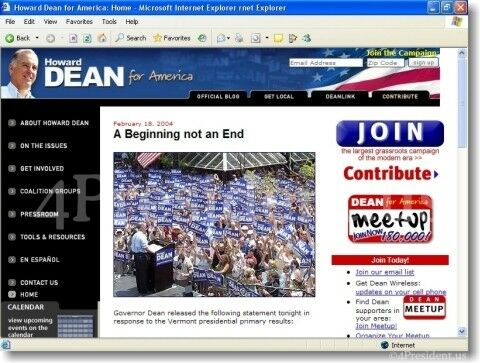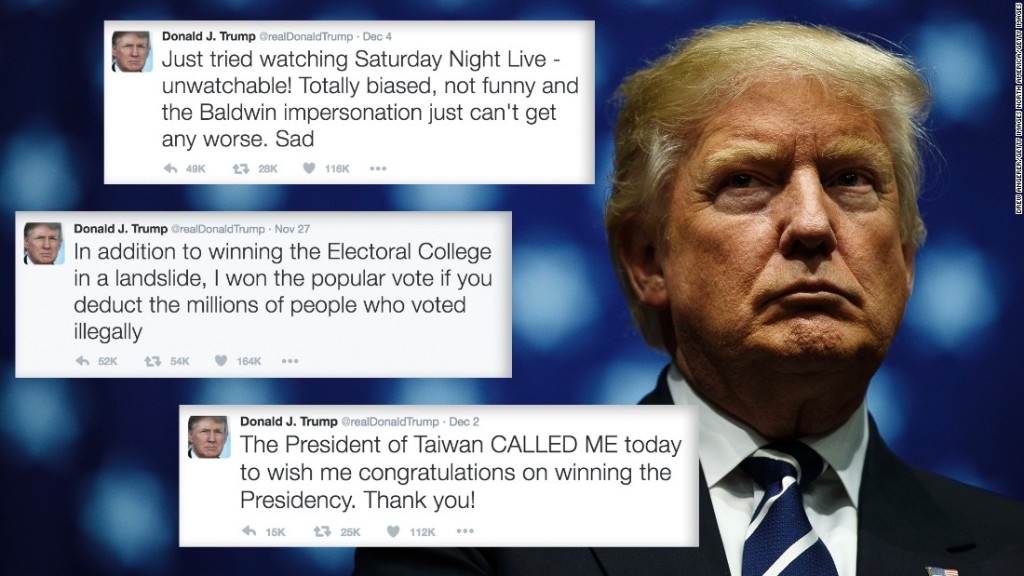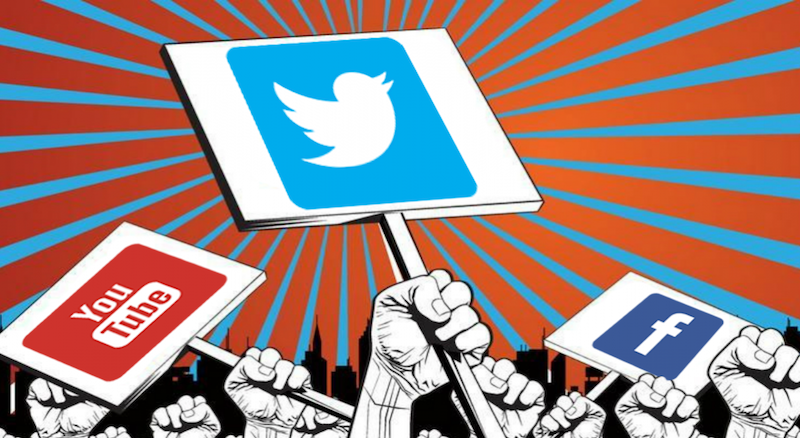Then:

While social media is viewed as a relatively modern tool in political culture, it has been utilized for much longer than many can remember. The first real internet-based presidential campaign launched in early 2003, belonging to former Vermont Governor Howard Dean as he pursued the 2004 Democratic nomination for president. Many supporters of presidential candidates used a website called Meetup.com to organize meetings between supporter. After a link from the site was posted on Dean’s campaign site, his supporters “meetups” soared from 400 to over 190,000, proving how important the role of the internet is in connecting people’s political views. Dean saw this opportunity to utilize the internet to publicize campaign events, organize supporters and even raise money. Harvard School of Government Professor Elaine Kamarck, said that Howard Dean was a revolutionary for the world of politics, more specifically, changed the way political fundraisers are run. Dean collected 60% of his campaign donations in contributions of less than $200, most of, if not all of which was collected online. Unfortunately Dean’s campaign inevitably failed, however it played a major part is displaying how the internet’s influence was a fighting force in politics. As a result, several politicians after Dean began copying his concept of campaigning on the internet platform including Massachusetts senator John Kerry and even President Bush. This all inevitably led to Barack Obama’s groundbreaking presidential campaign in 2008 for its contribution to the quantity of online activity surrounding the election as well as the funds achieved through online solicitation. Obama’s campaign created it’s own social network known as MyBarackObama.com, which is no longer available, yet made huge contributions to the success of Obama’s campaign. Similar to Dean’s campaign site, Obama’s site allowed his supporters to create profiles and meet other supporters as well as provided information about organizing campaign events.
Now:

Now that social media is a major purveyor of everyday life, it’s role in politics is much more significant. Platforms such as Twitter, Facebook and YouTube all provide ways to motivate and encourage citizens to become engaged in political life while also allowing them to voice their personal opinions on topics of interest. Social media is used as a tool not just by voters but also by politicians. This platforms allows politicians to avoid traditional methods of interacting with their following which almost always involved spending money on events. Candidates can tweet their ideas for everyone to be exposed to, and can send mass emails requesting donations without ever having to go out and host a rally. Social media also is a quick and easy marketing tool making it easier to promote campaign events and rallies. Additionally, social media is free, which means less spending on traditional marketing tools and events. Social media’s impact on the upcoming 2020 election is already having a similar impact that it did during the 2016 election. Social media makes it easier for everyone to be exposed to political concepts, ideologies and candidates. As a result, more people than ever before are educated on political culture. The 2016 election’s dependence on social media even introduced a new player in the political game, teenagers. The 2016 election was the first election where politics was discussed as entertainment, therefore drawing teenagers into the trend. The social media platform is making it easier for younger generations to become involved in politics, which drew even more attention to the election because the audience demographic grew. However, having unlimited access to voters and politicians has it downsides. With information circulating everywhere from every source imaginable, credible or not, it’s difficult to tell what is real or fake. Memes, links and tweets can be a mix of comedic satire and the truth, until it’s not, then it becomes “fake news.”
Later:

Social media’s profound impact on politics is still relatively new. The last presidential election was the first where it played an extreme role in spreading ideas and information about candidates, however I don’t believe it’ll be slowing down anytime soon. It is safe to say that we can expect some pretty major changes to our political system all because of social media’s influence. Online voting is something we may see in the not so distant future. Online voting will make it easier for people to vote and could potentially lead to a higher voter turnout. Additionally, polling techniques will become more universal and possibly even faster and more accurate. Candidates may even be turning to social media platforms to host completely online rallies. Many are already using sites such as Twitter and Instagram to livestream campaign events but a shift towards totally online rallies is plausible. As technology grows there’s no doubt that politicians and campaigns will grow with it. Social media has proven to be useful for politicians as a way to personally address the world without having a staff or writer do it for them. As we look towards the future it is important to remember that politicians will do whatever it takes to get closer to voters. Perhaps we will see more one-on-one forms of campaign marketing through social platforms, who knows, maybe one day we’ll be receiving Skype calls from the president. While that example seems highly unlikely now, we must keep in mind that campaign marketing has moved far past just vicious television ads and calls on the phone from campaign staff. With the prevalence of social media allowing political figures to get closer to their supporters by directly sharing their ideas, it’s very possible that a similar marketing tactic will become the new normal. While the future of campaign marketing and political relevance through social media platforms seems murky, all we know now is that it’s not slowing down.